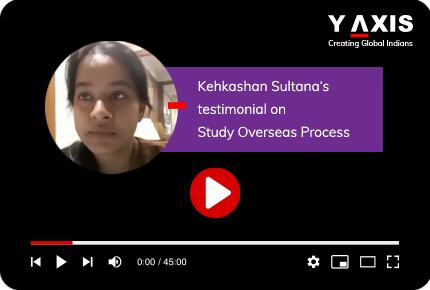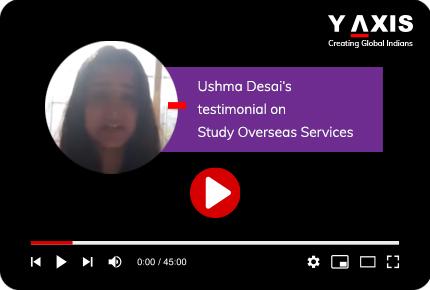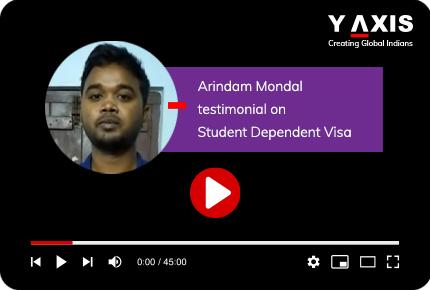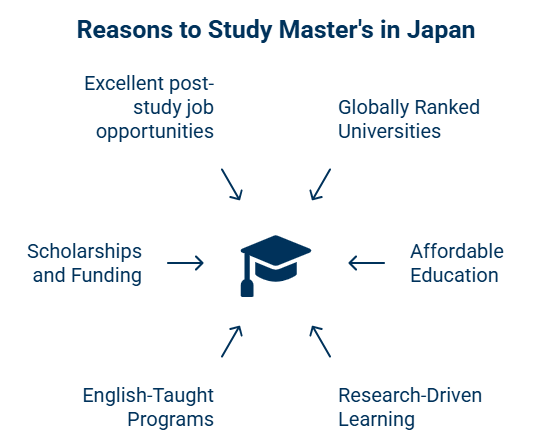- Points Based
- Most people below the age of 51 years old, with an occupation (listed on each country’s list), 2+ years of work experience & good English / French are eligible for this
- It is the most popular way of settling overseas
- Similar to skilled immigration
- Occupation must be listed on the state list
- Long term visa converted to PR & citizenship
- Very popular option for most countries
- Candidates who find a full time job & an employer overseas are eligible for this visa
- test
Y-Axis offers job search services to help candidates market themselves to overseas employers. We have a high success rate & have been very successful with this. For more information, please click here.
- Some countries offer permanent residency anyone who has a parent, brother, sister, uncle, aunt or first cousin overseas
- The sponsoring relative needs to be an citizen or a permanent resident of that country
- test
- Many countries offer a temporary or PR visa in exchange for an investment
- Investment amounts can range from $50,000 to $500,000 or more



masters in japan
study masters in japan
Study for a Master’s in Japan at top universities. Learn about eligibility, costs, scholarships, intakes & how to get admission in Japanese universities.
Why Study Master’s in Japan?
- Globally ranked universities: Japan is home to some of the world’s top universities with strong international reputations for research and innovation.
- Affordable postgraduate education: Compared to Western countries, Japan offers high-quality master’s programs at significantly lower tuition costs.
- Research-driven learning: Japanese universities emphasize advanced research and real-world applications in science, technology, and business.
- English-taught programs: Many universities offer master’s programs in English, eliminating the need for Japanese fluency.
- Scholarships and funding: Generous scholarships and tuition waivers make studying in Japan accessible for international students.
- Career prospects: Japan’s robust economy and demand for global talent offer excellent post-study job opportunities.

Top Universities Offering Master’s in Japan
Japan hosts some of the best universities in Asia, known for academic excellence and research infrastructure. Many of these universities actively recruit international students for their English-taught postgraduate programs.
Top universities for Master’s in Japan include:
- The University of Tokyo
- Kyoto University
- Osaka University
- Tohoku University
- Nagoya University
- Tokyo Institute of Technology
- Hokkaido University
- Kobe University
- Ritsumeikan University
- International University of Japan
Popular Master’s Programs in Japan
- Engineering and Technology
- Artificial Intelligence and Robotics
- Information Technology and Data Science
- Business Administration (MBA)
- International Relations and Global Policy
- Environmental and Life Sciences
- Architecture and Urban Design
- Physics and Materials Science
- Agriculture and Sustainable Studies
Eligibility Criteria for Master’s in Japan
International students must meet the following criteria to apply for a Master’s in Japan:
- Academic qualification: A recognized bachelor’s degree or equivalent from a reputed institution.
- Language proficiency:
- For English-taught programs: IELTS, TOEFL, or equivalent English test scores.
- For Japanese-taught programs: Japanese Language Proficiency Test (JLPT) results.
- Research proposal: Most master’s programs require a detailed statement of research intent or study plan.
- Entrance examination/interview: Some universities may conduct written exams or interviews.
- Application documents: Academic transcripts, statement of purpose, letters of recommendation, CV, and valid passport.
- Proof of financial resources: Evidence showing sufficient funds for tuition and living expenses.
How to Get Admission to a Japanese University for a Master’s Degree?
Applying for a Master’s in Japan involves a structured process. Here’s a step-by-step guide:
- Step 1: Choose Your Program and University
Identify universities that offer programs aligned with your academic background and research interests. - Step 2: Review Admission Requirements
Check eligibility, required documents, and language proficiency standards for your chosen program. - Step 3: Prepare Your Research Proposal
Prepare a strong statement of purpose or research plan that aligns with the university’s focus area. - Step 4: Contact Professors (if required)
Some universities encourage students to contact potential supervisors before applying, especially for research-based programs. - Step 5: Submit the Application
Apply online with your completed documents. Ensure all academic transcripts and references are submitted before deadlines. - Step 6: Attend an Interview or Entrance Test
If shortlisted, you may be required to appear for an interview (online or in-person) or take the university’s entrance examination. - Step 7: Receive the Admission Offer
Upon acceptance, you’ll receive an official offer letter and Certificate of Eligibility (COE). - Step 8: Apply for a Student Visa
Use the COE to apply for your Japanese student visa at the nearest embassy or consulate. - Step 9: Prepare for Arrival
Arrange accommodation, health insurance, and other essentials before traveling to Japan.
Duration of a Master’s in Japan
Most master’s programs in Japan take two years to complete. However, research-intensive programs may extend depending on the thesis requirements or field of study.
Intakes and Application Deadlines
Japanese universities typically offer two major intakes:
- Spring Intake: April
- Autumn Intake: September or October
Applicants should start preparing 6–9 months in advance of their preferred intake to meet deadlines and scholarship timelines.
Cost of Studying Master’s in Japan
Tuition Fees:
- National and public universities charge around ¥500,000–¥600,000 per year, while private universities may cost between ¥800,000 and ¥1,500,000 annually.
Living Expenses:
- Average living costs range from ¥900,000 to ¥1,500,000 per year, depending on the city and lifestyle.
Scholarships for International Students
Japan offers multiple scholarships for postgraduate students to support tuition and living expenses.
Major scholarships include:
- MEXT (Monbukagakusho) Scholarship – covers full tuition, living expenses, and airfare.
- JASSO Honors Scholarship – for outstanding international students.
- University-specific fellowships – available at leading institutions like Tokyo Tech, Kyoto University, and Osaka University.
- Private scholarships – offered by organizations and foundations for academic excellence.
Work Opportunities for Students
International students can work up to 28 hours per week during semesters and up to 40 hours per week during vacations with permission from the Immigration Bureau.
Common part-time jobs include teaching assistance, research internships, and service sector roles. These jobs help students cover expenses while gaining work experience in Japan.
Post-Study Work Opportunities
Japan’s thriving industries offer excellent employment prospects for master’s graduates. After completing your studies, you can apply for a Work Visa to stay and work in Japan.
Top sectors hiring master’s graduates include:
- Information Technology and Artificial Intelligence
- Robotics and Engineering
- Business Management and Consulting
- Research and Development
- Energy and Environmental Sciences
- Finance and International Trade
Graduates with strong Japanese language skills and research backgrounds have an added advantage in securing high-paying roles.
Top 10 Affordable Universities for Indian Students to Study Master’s
| Sno | University | Approx. Annual Tuition (PG) | Est. Living Expenses (per year) | Part-Time Work | Scholarships (for PG Students) | Top PG Programs / Fields |
|---|---|---|---|---|---|---|
| 1 | University of Tokyo (Graduate Schools) | ¥535,800 – ¥600,000 (≈ ₹2.9 – ₹3.3 L) | ¥1,000,000 | 28 hrs/week | MEXT, University of Tokyo Fellowship | IT, Engineering, Natural Sciences |
| 2 | Kyoto University | ¥535,800 – ¥600,000 (≈ ₹2.9 – ₹3.3 L) | ¥900,000 – ¥1,000,000 | 28 hrs/week | Kyoto Univ. Graduate Scholarship | Engineering, Energy Science, Agriculture |
| 3 | Tohoku University | ¥535,800 (≈ ₹2.9 L) | ¥850,000 | 28 hrs/week | MEXT, JASSO, Tohoku Intl. Scholarship | Advanced Engineering, Science, IT |
| 4 | Osaka University | ¥535,800 (≈ ₹2.9 L) | ¥850,000 – ¥950,000 | 28 hrs/week | Osaka Univ. Global Scholarship | Materials Science, Robotics, Physics |
| 5 | Nagoya University | ¥535,800 – ¥600,000 (≈ ₹2.9 – ₹3.3 L) | ¥900,000 | 28 hrs/week | Nagoya G30 Scholarship | IT, Mechanical Engineering, Physics |
| 6 | Hokkaido University | ¥535,800 – ¥600,000 (≈ ₹2.9 – ₹3.3 L) | ¥850,000 – ¥950,000 | 28 hrs/week | MEXT, Hokkaido Univ. President’s Award | Life Sciences, Agriculture, Environment |
| 7 | Tokyo Institute of Technology (Tokyo Tech) | ¥635,000 (≈ ₹3.5 L) | ¥950,000 | 28 hrs/week | Tokyo Tech Graduate Fellowship | Data Science, AI, Energy, Engineering |
| 8 | International University of Japan (IUJ) | ¥1,480,000 (≈ ₹8.2 L) | ¥1,000,000 | 28 hrs/week | IUJ Full & Partial Scholarships | MBA, Economics, International Relations |
| 9 | Ritsumeikan University | ¥1,000,000 – ¥1,200,000 (≈ ₹5.5 – ₹6.6 L) | ¥900,000 | 28 hrs/week | RU Global Scholarship | Policy Science, Engineering, Design |
| 10 | Kobe University | ¥535,800 (≈ ₹2.9 L) | ¥850,000 | 28 hrs/week | Kobe Univ. International Merit Award | Business, Economics, Maritime Studies |
How can Y-Axis help you?
Y-Axis provides complete guidance and end-to-end assistance for students aspiring to pursue their Master’s in Japan, including:
- Personalized university and course selection.
- Assistance with application and documentation.
- Guidance on scholarships and funding options.
- Visa application support and interview preparation.
- Pre-departure briefings and post-arrival assistance.

